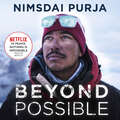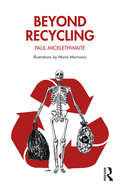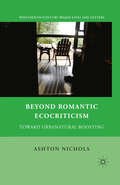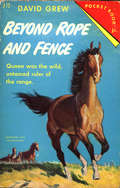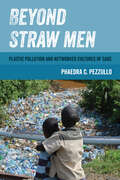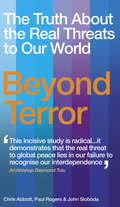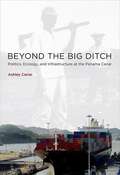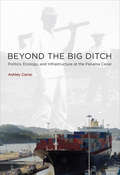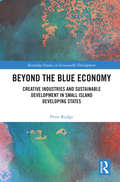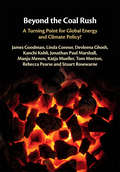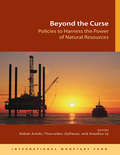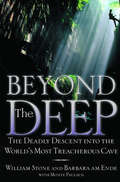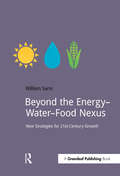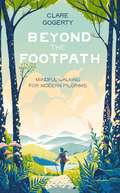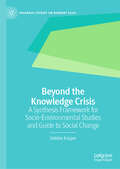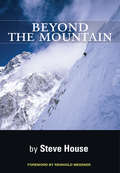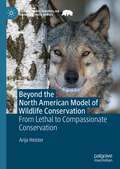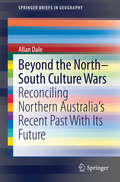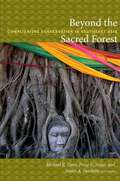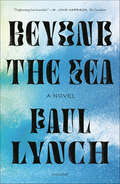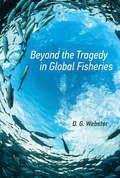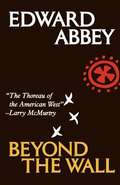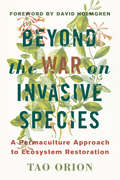- Table View
- List View
Beyond Possible: '14 Peaks: Nothing is Impossible' Now On Netflix
by Nimsdai PurjaAn SBS Gurkha soldier's account of how his tough Nepali upbringing and the lessons learned in his army life enabled his record-breaking conquest of all 14 of the world's 8,000m peaks in under 7 months.What happens when ambition meets limitless imagination? Enter Project Possible: a seemingly unreachable goal to climb all fourteen "death zone" mountains in record time. The previous record was seven years, ten months and six days. I did it in six months.This is the inside story of my incredible adventure. As a kid in Nepal, barefoot in the mountains, I developed the resilience I needed to later join the Gurkhas, one of the most fearless forces in the British Army. Then in the Special Boat Service I served in some of the world's most dangerous warzones.But my next challenge was even more of a test.In Beyond Possible I'll reveal how I conquered the world's most dangerous peaks, breaking several world records in the process. With my elite training, I was able to adapt quickly to the lethal conditions, rarely phased by the lung-burning temperatures or brutal winds. Fear became irrelevant because I had belief. In the death zone, I came alive. But even after facing countless challenges, right at the peak of my achievements, my world fell apart when my mother was hospitalized.But I survived and ultimately conquered the most deadly and hostile mountains on the planet. Beyond Possible is my story.(P)2020 Hodder & Stoughton Limited
Beyond Recycling
by Paul MicklethwaiteBeyond Recycling critically explores unasked questions around recycling and its prominent position in contemporary thinking about sustainability. It examines and challenges assumptions about why we appear to have so wholeheartedly committed to recycling as a cultural project. Recycling has become a commonplace notion and widespread practice. Yet its social, cultural and even environmental value has not been considered carefully enough. This book considers recycling as a contemporary cultural idea related to – but not wholly defied by – our response to material waste. It seeks to reclaim recycling from the environmentalists and waste management specialists, to explore the role it plays in wider contemporary discourse. As we become increasingly satiated, and in many cases sickened, by the excesses of modern consumerism, we are rethinking our relationship with the physical stuff that fills our lives. Dissatisfied with empty materialism, we seek new ways to reuse our material culture. Recycling, turning something considered to be waste into something with renewed value, is our primary collective response to the problems arising from consumption; and it is ripe for critical examination. Beyond Recycling is a fascinating read for conscious consumers and students in the creative arts, design, cultural studies, sustainability and environmental studies.
Beyond Romantic Ecocriticism: Toward Urbanatural Roosting (Nineteenth-Century Major Lives and Letters)
by Ashton NicholsNichols chronicles the Enlightenment view of 'Nature' as static and separate from humans as it moved towards the Romantic 'nature' characterized by dynamic links among all living things. Engaging Romantic and Victorian thinkers, as well as contemporary scholarship, he draws new conclusions about 21st-century ideas of nature.
Beyond Rope and Fence (Famous Horse Stories)
by David GrewA black-maned buckskin like her mother, Queen was born on the open prairie, and early learned to fear the very sight and smell of men. As she grew to maturity, Queen became a wise and crafty leader of the wild band, leading it north whenever she saw men on the horizon. Caught at last, and apparently tamed, Queen waited only the chance to rejoin her mate and the herd on the free, open ranges she loved.
Beyond Smoke and Mirrors
by Burton RichterGlobal climate change is one of the most important issues humanity faces today. This book assesses the sensible, senseless and biased proposals for averting the potentially disastrous consequences of global warming, allowing the reader to draw their own conclusions on switching to more sustainable energy provision. Burton Richter is a Nobel Prize-winning scientist who has served on many US and international review committees on climate change and energy issues. He provides a concise overview of our knowledge and uncertainties within climate change science, discusses current energy demand and supply patterns, and the energy options available to cut emissions of greenhouse gases. Written in non-technical language, this book presents a balanced view of options for moving from our heavy reliance on fossil fuels into a much more sustainable energy system, and is accessible to a wide range of readers without scientific backgrounds - students, policymakers, and the concerned citizen.
Beyond Straw Men: Plastic Pollution and Networked Cultures of Care (Environmental Communication, Power, and Culture #4)
by Phaedra C. PezzulloAddressing plastics can feel overwhelming. Guilt, shame, anger, hurt, fear, dismissiveness, and despair abound. Beyond Straw Men moves beyond "hot take" or straw man fallacies by illustrating how affective counterpublics mobilized around plastics reveal broader stories about environmental justice and social change. Inspired by on- and offline organizing in the Global South and the Global South of the North, Phaedra C. Pezzullo engages public controversies and policies through analysis of hashtag activism, campaign materials, and podcast interviews with headline-making advocates in Bangladesh, Kenya, the United States, and Vietnam. She argues that plastics have become an articulator of crisis and an entry point into the contested environmental politics of carbon-heavy masculinity, carceral policies, planetary fatalism, eco-ableism, greenwashing, marine life endangerment, pollution colonialism, and waste imperialism. Attuned to plastic attachments, Beyond Straw Men illustrates how everyday people resist unsustainable patterns of the plastics-industrial complex through imperfect but impactful networked cultures of care.
Beyond Terror: The Truth About the Real Threats to Our World
by Chris Abbott John Sloboda Paul RogersIs international terrorism really the single greatest threat to world security?Since the 9/11 attacks, many Western governments assume terrorism to be the greatest threat we face. In response, their dangerous policies attempt to maintain control and keep the status quo by using overwhelming military force. This important book shows why this approach has been such a failure, and how it distracts us from other, much greater, threats of climate change, competition over resources, marginalisation of the majority of the world and global militarisation.Unless urgent, coordinated action is taken in the next 5-10 years on all these issues it will be almost imossible to avoid the earth becoming a highly unstable place by the middle years of this century. Beyond Terror offers an alternative path for politicians, journalists and concerned citizens alike.
Beyond the Big Ditch
by Ashley CarseIn this innovative book, Ashley Carse traces the water that flows into and out from the Panama Canal to explain how global shipping is entangled with Panama's cultural and physical landscapes. By following container ships as they travel downstream along maritime routes and tracing rivers upstream across the populated watershed that feeds the canal, he explores the politics of environmental management around a waterway that links faraway ports and markets to nearby farms, forests, cities, and rural communities. Carse draws on a wide range of ethnographic and archival material to show the social and ecological implications of transportation across Panama. The Canal moves ships over an aquatic staircase of locks that demand an enormous amount of fresh water from the surrounding region. Each passing ship drains 52 million gallons out to sea -- a volume comparable to the daily water use of half a million Panamanians. Infrastructures like the Panama Canal, Carse argues, do not simply conquer nature; they rework ecologies in ways that serve specific political and economic priorities. Interweaving histories that range from the depopulation of the U.S. Canal Zone a century ago to road construction conflicts and water hyacinth invasions in canal waters, the book illuminates the human and nonhuman actors that have come together at the margins of the famous trade route. 2014 marks the 100th anniversary of the Panama Canal. Beyond the Big Ditch calls us to consider how infrastructures are materially embedded in place, producing environments with winners and losers.
Beyond the Big Ditch: Politics, Ecology, and Infrastructure at the Panama Canal (Infrastructures)
by Ashley CarseA historical and ethnographic study of the conflict between global transportation and rural development as the two intersect at the Panama Canal. In this innovative book, Ashley Carse traces the water that flows into and out from the Panama Canal to explain how global shipping is entangled with Panama's cultural and physical landscapes. By following container ships as they travel downstream along maritime routes and tracing rivers upstream across the populated watershed that feeds the canal, he explores the politics of environmental management around a waterway that links faraway ports and markets to nearby farms, forests, cities, and rural communities. Carse draws on a wide range of ethnographic and archival material to show the social and ecological implications of transportation across Panama. The Canal moves ships over an aquatic staircase of locks that demand an enormous amount of fresh water from the surrounding region. Each passing ship drains 52 million gallons out to sea—a volume comparable to the daily water use of half a million Panamanians. Infrastructures like the Panama Canal, Carse argues, do not simply conquer nature; they rework ecologies in ways that serve specific political and economic priorities. Interweaving histories that range from the depopulation of the U.S. Canal Zone a century ago to road construction conflicts and water hyacinth invasions in canal waters, the book illuminates the human and nonhuman actors that have come together at the margins of the famous trade route. 2014 marks the 100th anniversary of the Panama Canal. Beyond the Big Ditch calls us to consider how infrastructures are materially embedded in place, producing environments with winners and losers.
Beyond the Blue Economy: Creative Industries and Sustainable Development in Small Island Developing States (Routledge Studies in Sustainable Development)
by Peter RudgeThis book argues for a broader approach to sustainable growth in Small Island Developing States (SIDS). Small island states such as those in the Caribbean, Indian Ocean and South Pacific face significant and growing threats from climate change, increasing political and social volatility, and rapidly evolving global trends in technology and tourism. Based on ten years of research, this book looks beyond the Blue Economy of tourism and fisheries and provides a model of how creative industries, innovation networks, creative clusters and digital transformation can give SIDS the foundation for a strong sustainable future. The book provides not only insights into how these emerging digital-creative sectors can drive developing economies but also actionable tools for policy makers, entrepreneurs and academics to deliver increased performance on the United Nations Sustainable Development Goals and, ultimately, growth and sustainability. This book will be of great interest to scholars and practitioners of economic geography, sustainable development, development studies and the creative industries.
Beyond the Coal Rush: A Turning Point for Global Energy and Climate Policy?
by James Goodman Linda Connor Devleena Ghosh Kanchi Kohli Jonathan Paul Marshall Manju Menon Katja Mueller Tom Morton Rebecca Pearse Stuart RosewarneClimate change makes fossil fuels unburnable, yet global coal production has almost doubled over the last 20 years. This book explores how the world can stop mining coal - the most prolific source of greenhouse gas emissions. It documents efforts at halting coal production, focusing specifically on how campaigners are trying to stop coal mining in India, Germany, and Australia. Through in-depth comparative ethnography, it shows how local people are fighting to save their homes, livelihoods, and environments, creating new constituencies and alliances for the transition from fossil fuels. The book relates these struggles to conflicts between global climate policy and the national coal-industrial complex. With coal's meaning transformed from an important asset to a threat, and the coal industry declining, it charts reasons for continuing coal dependence, and how this can be overcome. It will provide a source of inspiration for energy transition for researchers in environment, sustainability, and politics, as well as policymakers.
Beyond the Curse: Policies to Harness the Power of Natural Resources
by Rabah ArezkiA report from the International Monetary Fund.
Beyond the Deep: The Deadly Descent into the World's Most Treacherous Cave
by William Stone Barbara Am Ende Monte PaulsenBeyond the Deep is an adventurous, firsthand account of a great caving expedition located in Oxaca, Mexico. A group of spelunkers attempt to delve deep into the most dangerous cave on earth: the Sistema Huautla.
Beyond the Energy–Water–Food Nexus: New Strategies for 21st-Century Growth (Doshorts Ser.)
by Will SarniProviding food, clean water and energy for a growing population is one of the greatest challenges facing public and private sector professionals. While there is widespread recognition of the complex feedback loops between energy, water and food, there has been less focus on viable solutions. This guide by Will Sarni – an internationally recognized thought leader on corporate water stewardship and water tech innovation – frames the key issues and challenges for business professionals, and then outlines emerging solutions which include both "soft path" and technology innovation approaches. The book includes case examples of multinational companies who are abandoning business as usual and moving beyond traditional thinking. It also highlights crucial new partnerships or "collective action initiatives" where NGOs, multinationals and the public sector come together to forge practical solutions to meet the needs of their stakeholders. Solutions to the energy–water–food nexus will need to be disruptive, not incremental, and will require technology innovation, new public–private partnerships, and changes in public policy. Beyond the Energy–Food–Water Nexus shows organizations how they can play their part in improving the quality of life for an urbanized global population while preserving the ecosystems that sustain us all.
Beyond the European Left: Ideology and Political Action in the Belgian Ecology
by Herbert Kitschelt Staf HellemansDrawing on recent research on the internal politics of the Belgian ecology parties, Agalev and Ecolo, this work demonstrates how political careers in contemporary social movements lead to activism in left-libertarian politics and influence political ideology. Beyond the European Left is the first comprehensive survey of ecology parties in Europe that presents detailed empirical information on the careers, organizational practices, and political beliefs of the activists involved.The authors employ a new research methodology--surveying party militants--that is better adapted to the study of micropolitics than are expert interviews. Herbert Kitschelt and Staf Hallemans show that European Green party activists express an egalitarian and libertarian vision of a desirable social order that builds on, but radically transforms, ideas of the traditional socialist European left. The authors then examine the debates and disagreements among militants on political objectives and the consequences of conflicting views for party organization and strategy. Their findings illuminate the unique dynamics of left-libertarian politics in a number of Western European countries with obvious relevance to current developments in Eastern Europe.
Beyond the Footpath: Mindful Adventures for Modern Pilgrims
by Clare Gogerty'A treasure-trove of inspiration . .. [Beyond the Footpath] shows us how to make the most of the calm beauty of the natural world that surrounds us, as well as offering practical guidance on where to find - and how to travel to - those special places' Raynor Winn, bestselling author of The Salt Path'Inspirational yet practical. With mindful exercises and tracks to take. Discover the benefits of being a modern pilgrim' Country Living'A brilliant solution to restoring balance and rediscovering meaning' The Simple ThingsAN INSPIRING GUIDE TO WALKING MINDFULLY TO PLACES OF MEANINGA pilgrimage - long, short, secular or religious - gives you the opportunity to step out of your day-to-day routine and follow a path that promises meaning, a little magic and the space to breathe.Beyond the Footpath will take you on a journey to places of spiritual or personal significance - and show you how to travel in a way that enhances your connection to the world and to yourself. Whether you choose a long-distance trail, an ascent of an awe-inspiring mountain, a walk in an ancient forest, a journey to a temple, stone circle or sacred garden, or simply a lunchtime stroll to somewhere special, Beyond the Footpath has suggestions and tips to inspire you to open the door and walk into a world of wonder.
Beyond the Knowledge Crisis: A Synthesis Framework for Socio-Environmental Studies and Guide to Social Change (Palgrave Studies on Norbert Elias)
by Debbie KasperIn the face of complex, interwoven, planet-scale problems, many cite the need for more integrated knowledge—especially across the natural and social sciences. Excessive specialization, they argue, gets in the way of knowing what we know, much less being able to use it to address urgent socio-environmental crises. These concerns, it turns out, go back centuries. This book picks up where most leave off, exploring the history of how we got here and proposing a way forward. Along the way, readers find that the synthesis long called for depends on theoretical advancements in social science. Fortunately, the author argues, we have everything we need to achieve those advancements, thanks largely to the contributions of Norbert Elias. Integrating his insights with history, science, sociological theory, and more, this book neatly packages the upgraded paradigm we need to be able to meaningfully address complex socio-environmental problems and more intentionally shape humanity’s collective future.
Beyond the Mountain
by Reinhold Messner Steve HouseWhat does it take to be one of the world's best high-altitude mountain climbers? A lot of fundraising; traveling in some of the world's most dangerous countries; enduring cold bivouacs, searing lungs, and a cloudy mind when you can least afford one. It means learning the hard lessons the mountains teach.Steve House built his reputation on ascents throughout the Alps, Canada, Alaska, the Karakoram and the Himalaya that have expanded possibilities of style, speed, and difficulty. In 2005 Steve and alpinist Vince Anderson pioneered a direct new route on the Rupal Face of 26,600-foot Nanga Parbat, which had never before been climbed in alpine style. It was the third ascent of the face and the achievement earned Steveand Vince the first Piolet d"or (Golden Ice Axe) awarded to North Americans.Steve is an accomplished and spellbinding storyteller in the tradition of Maurice Herzog and Lionel Terray. Beyond the Mountain is a gripping read destined to be a mountain classic. And it
Beyond the North American Model of Wildlife Conservation: From Lethal to Compassionate Conservation (The Palgrave Macmillan Animal Ethics Series)
by Anja HeisterThe North American Wildlife Conservation Model (NAM) is the driver of a strong anthropocentric stance, which has legalized an ongoing, annual exploitation of hundreds of millions of wild animals, who are killed in the United States through trapping, hunting and other lethal practices. Increasingly, the American public opposes the killing of wild animals for recreation, trophies and profit but has little—if any—knowledge of the Model. The purpose of this book is to empower the public with knowledge about the NAM’s insufficiencies and to help expedite the shift from lethal to compassionate conservation, an endeavour urgently needed particularly under the threats of climate change, human population growth and accelerating plant and animal species extinctions.With a focus on trapping, this book exposes the NAM's belief in human supremacy and its consequences for wild animals and their ecosystems, the same value that is driving the ongoing global destruction of nature and accelerating species extinction. Motivated by a deep concern for wild animals who suffer and whose lives are extinguished each year by 'sportsmen and women', this book exposes the violent treatment of wild animals inherent in governmental-promoted hunting and trapping programs, while emphasizing the importance of empathy and compassion for other animals in conservation and in our lives.
Beyond the North-South Culture Wars: Reconciling Northern Australia's Recent Past With Its Future (SpringerBriefs in Geography)
by Allan DaleIncreasingly, Australia's agriculturalists are looking to the nation's north to escape the decline in southern Australia's water and soil resources. Booming mineral and gas development is also helping to drive the nation's economic success. At the same time, the south's conservation sector would like to see much of the north preserved as iconic wilderness. Both conservation and resource development interests alike are often at odds with the interests of the north's traditional owners, many of whom remain trapped in welfare dependency and poverty. Indeed, to the ire of north Australians, the past five decades of north Australian history have indeed been characterized by these national-scale conflicts being played out in regional and local communities. This book explores these conflicts as well as the many emerging opportunities facing the development of the north, suggesting that a strong cultural divide between northern and southern Australia exists; one that needs to be reconciled if the nation as a whole is to benefit from northern development. The author first explores where these historical conflicts could take us without a clear forward agenda. A story-based personal narrative from his long and diverse experience in the north gives life to these themes. Finally, the book then draws on these stories to help shape a cohesive agenda for the north's future.
Beyond the Sacred Forest: Complicating Conservation in Southeast Asia
by Michael R. Dove Percy E. Sajise Amity A. DoolittleReflecting new thinking about conservation in Southeast Asia, Beyond the Sacred Forest is the product of a unique, decade-long, interdisciplinary collaboration involving research in Indonesia, Malaysia, and the Philippines. Scholars from these countries and the United States rethink the translation of environmental concepts between East and West, particularly ideas of nature and culture; the meaning of conservation; and the ways that conservation policy is applied and transformed in the everyday landscapes of Southeast Asia. The contributors focus more on folk, community, and vernacular conservation discourses than on those of formal institutions and the state. They reject the notion that conservation only takes place in bounded, static, otherworldly spaces such as protected areas or sacred forests. Thick with ethnographic detail, their essays move beyond the forest to agriculture and other land uses, leave behind orthodox notions of the sacred, discard outdated ideas of environmental harmony and stasis, and reject views of the environment that seek to avoid or escape politics. Natural-resource managers and policymakers who work with this more complicated vision of nature and culture are likely to enjoy more enduring success than those who simply seek to remove the influence and impact of humans from conserved landscapes. As many of the essays suggest, this requires the ability to manage contradictions, to relinquish orthodox ideas of what conservation looks like, and to practice continuously adaptive management techniques. Contributors. Upik Djalins, Amity A. Doolittle, Michael R. Dove, Levita Duhaylungsod, Emily E. Harwell, Jeyamalar Kathirithamby-Wells, Lye Tuck-Po, Percy E. Sajise, Endah Sulistyawati, Yunita T. Winarto
Beyond the Sea: A Novel
by Paul LynchA novel from the 2023 Booker Prize winning author of Prophet Song"Beyond the Sea is frightening but beautiful." --M John Harrison, The GuardianThe haunting story of two men stranded at sea pushing against their physical and mental limits to stay aliveBased partly on true events, Paul Lynch’s haunting and sublime novel Beyond the Sea tells the story of two South American fishermen, Bolivar and Hector, who go to sea before a catastrophic storm. Needing cash, Bolivar convinces his boss to let him fish despite the weather. His fishing partner is nowhere to be found, so he brings Hector, a sullen and inexperienced teenager. The storm arrives, and though the two men survive, they’ve been blown hundreds of miles out in the Pacific Ocean with little hope for rescue. Coming to terms with their new reality, they are forced to accept their separation from the modern world, their sudden and inescapable intimacy, and the possibilities and limits of faith, hope, and survival. As the days go by, they grapple with the mistakes of their pasts, the severity of their present, and the uncertainty of their future. And though Bolivar and Hector fight to maintain their will to live, nothing in the barren seascape or in their minds promises that they will make it. Ambitious and profoundly moving, Beyond the Sea explores what it means to be a man, a friend, and a sinner in a fallen world. With evocative prose, Lynch crafts a suspenseful drama that refuses sentimentality or easy answers. Instead, Beyond the Sea is a hard-won and intimate rendering of the extremities of human life, both physical and mental.
Beyond the Tragedy in Global Fisheries (Politics, Science, and the Environment)
by D. G. WebsterAn analysis of how responsive governance has shaped the evolution of global fisheries in cyclical patterns of depletion and rebuilding dubbed the “management treadmill.”The oceans are heavily overfished, and the greatest challenges to effective fisheries management are not technical but political and economic. In this book, D. G. Webster describes how the political economy of fisheries has evolved and highlights patterns that are linked to sustainable transitions in specific fisheries. Grounded in the concept of responsive governance, Webster's interdisciplinary analysis goes beyond the conventional view of the "tragedy of the commons.” Using her Action Cycle/Structural Context framework, she maps long-running patterns that cycle between depletion and rebuilding in a process that she terms the management treadmill.Webster documents the management treadmill in settings that range from small coastal fishing communities to international fisheries that span entire oceans. She identifies the profit disconnect, in which economic incentives are out of sync with sustainable use, and the power disconnect, in which those who experience the costs of overexploitation are politically marginalized. She examines how these disconnects shaped the economics of expansion and documents how political systems failed to prevent related cycles of serial resource depletion. Webster also traces the increasing use of restrictive management in response to worsening fisheries crises and the emergence of new, noncommercial interests that demand greater management but also generate substantial conflict. She finds that the management treadmill is speeding up with population growth and economic development, and so concludes that sustainable fisheries can only exist within a sustainable global economic system.
Beyond the Wall: Essays from the Outside
by Edward AbbeyIn this wise and lyrical book about landscapes of the desert and the mind, Edward Abbey guides us beyond the wall of the city and asphalt belting of superhighways to special pockets of wilderness that stretch from the interior of Alaska to the dry lands of Mexico.
Beyond the War on Invasive Species
by David Holmgren Tao OrionInvasive species are everywhere, from forests and prairies to mountaintops and river mouths. Their rampant nature and sheer numbers appear to overtake fragile native species and forever change the ecosystems that they depend on. Concerns that invasive species represent significant threats to global biodiversity and ecological integrity permeate conversations from schoolrooms to board rooms, and concerned citizens grapple with how to rapidly and efficiently manage their populations. These worries have culminated in an ongoing "war on invasive species," where the arsenal is stocked with bulldozers, chainsaws, and herbicides put to the task of their immediate eradication. In Hawaii, mangrove trees (Avicennia spp.) are sprayed with glyphosate and left to decompose on the sandy shorelines where they grow, and in Washington, helicopters apply the herbicide Imazapyr to smooth cordgrass (Spartina alterniflora) growing in estuaries. The "war on invasive species" is in full swing, but given the scope of such potentially dangerous and ecologically degrading eradication practices, it is necessary to question the very nature of the battle. Beyond the War on Invasive Species offers a much-needed alternative perspective on invasive species and the best practices for their management based on a holistic, permaculture-inspired framework. Utilizing the latest research and thinking on the changing nature of ecological systems, Beyond the War on Invasive Species closely examines the factors that are largely missing from the common conceptions of invasive species, including how the colliding effects of climate change, habitat destruction, and changes in land use and management contribute to their proliferation. Beyond the War on Invasive Species demonstrates that there is more to the story of invasive species than is commonly conceived, and offers ways of understanding their presence and ecosystem effects in order to make more ecologically responsible choices in land restoration and biodiversity conservation that address the root of the invasion phenomenon. The choices we make on a daily basis--the ways we procure food, shelter, water, medicine, and transportation--are the major drivers of contemporary changes in ecosystem structure and function; therefore, deep and long-lasting ecological restoration outcomes will come not just from eliminating invasive species, but through conscientious redesign of these production systems.
